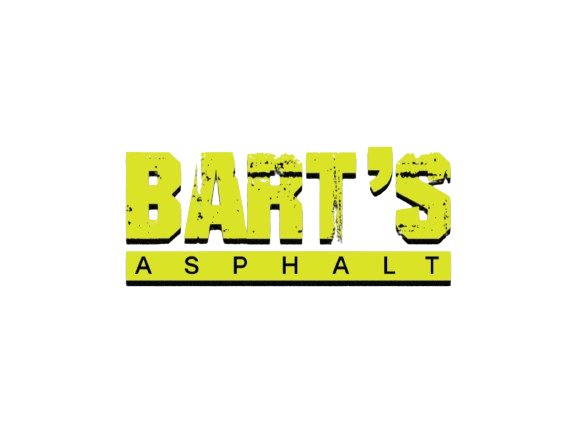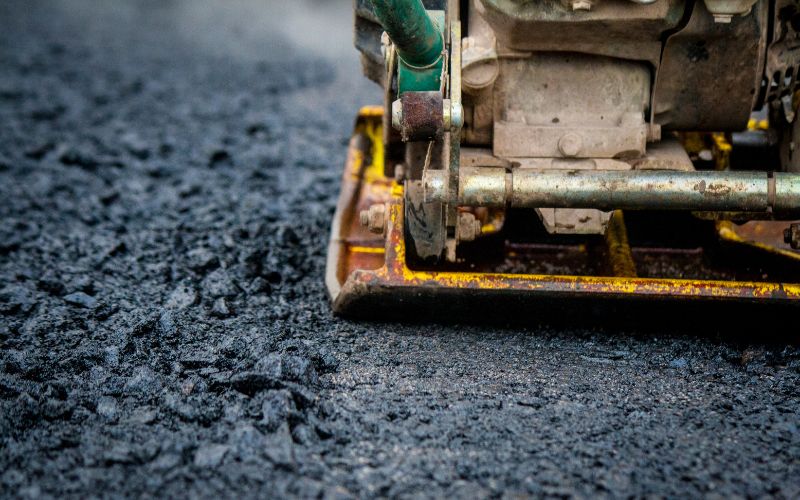Lansing’s industrial landscape represents the backbone of Michigan’s manufacturing and economic infrastructure, with asphalt surfaces serving as critical lifelines that support complex industrial operations. These surfaces endure extraordinary stress, bearing the weight of heavy machinery, constant vehicle traffic, and extreme environmental conditions that would quickly compromise lesser infrastructure.
The industrial corridors surrounding Lansing tell a story of technological innovation, economic resilience, and the critical importance of specialized infrastructure maintenance. From manufacturing facilities to logistics centers, the asphalt surfaces in these areas are more than simple roadways – they are sophisticated engineering solutions that must withstand unprecedented levels of mechanical and environmental stress.
Understanding Industrial Park Asphalt Challenges
Industrial park surfaces face a unique set of challenges that far exceed the demands placed on standard commercial or residential asphalt. The constant movement of heavy vehicles, from massive semi-trucks to industrial machinery, creates concentrated stress points that can rapidly deteriorate improperly maintained surfaces. Each pass of a heavily loaded vehicle introduces significant mechanical stress that can compromise pavement integrity.
The environmental challenges in Lansing’s industrial areas are equally complex. Chemical exposures from industrial processes, potential fuel and oil spills, and extreme temperature variations create a perfect storm of surface degradation factors. Manufacturing facilities, logistics centers, and industrial parks must contend with a wide range of environmental stressors that can quickly break down standard asphalt surfaces.
Michigan’s dramatic seasonal changes add another layer of complexity to industrial park maintenance. Harsh winters with multiple freeze-thaw cycles, combined with intense summer heat, create a challenging environment that constantly tests the limits of asphalt infrastructure. The ability to withstand these extreme conditions becomes a critical consideration in surface design and maintenance.
Diagnostic Approaches for Industrial Surfaces
Modern diagnostic techniques have revolutionized the approach to industrial asphalt maintenance. Advanced technologies like ground-penetrating radar, infrared scanning, and sophisticated load-bearing assessment tools provide unprecedented insights into surface conditions. These methods can detect subsurface variations, potential structural weaknesses, and early signs of potential failure that would remain invisible through traditional inspection methods.
Professional assessment for industrial surfaces goes far beyond simple visual inspection. Maintenance experts conduct comprehensive evaluations that examine surface integrity, base layer stability, load-bearing capacity, and specific traffic and usage characteristics. The goal is to develop maintenance strategies that protect critical infrastructure, prevent potential operational disruptions, and optimize long-term performance.
The diagnostic process for industrial parks considers multiple complex factors. Traffic patterns, vehicle types, specific operational requirements, and environmental exposures all play critical roles in developing a comprehensive maintenance strategy. Each industrial facility presents a unique set of challenges that demand specialized, tailored approaches to surface maintenance and preservation.
Economic Considerations for Industrial Property Managers
The financial implications of asphalt maintenance represent a critical consideration for industrial property managers. Comparative cost analyses reveal compelling economic insights that demonstrate the profound benefits of proactive maintenance strategies. Reactive repair approaches can cost between $20-$50 per square foot, while proactive maintenance strategies typically range from $5-$10 per square foot.
These figures represent more than simple numerical comparisons. They tell a story of strategic infrastructure management where intelligent investment can potentially save industrial facilities tens of thousands of dollars over an infrastructure’s lifecycle. Proactive maintenance transforms surfaces from potential financial liabilities into strategic assets that support operational efficiency and minimize unexpected downtime.
The economic benefits extend far beyond direct repair costs. Well-maintained surfaces contribute to improved operational efficiency, reduce vehicle wear, minimize potential safety incidents, and demonstrate a commitment to professional infrastructure management. For Lansing’s industrial facilities, this can directly impact productivity, operational costs, and overall competitive capabilities.
Specialized Repair and Maintenance Techniques
Industrial park asphalt maintenance requires a level of sophistication that goes far beyond standard commercial surface treatments. Repair approaches must address not just surface-level damage but the complex structural challenges created by heavy vehicle traffic and industrial environmental exposures. Professional repair techniques involve comprehensive surface preparation, precise material selection, and advanced application methods that ensure long-lasting, durable results.
Pothole repair and surface restoration for industrial areas demand specialized approaches that can withstand extreme mechanical stress. These techniques involve more than simply filling surface cavities – they require comprehensive structural assessment, specialized material selection, and precise application methods that restore full load-bearing capacity and surface integrity.
High-stress areas require targeted maintenance strategies that recognize the unique wear patterns of industrial environments. Entrance and exit points, loading dock areas, and primary traffic corridors experience concentrated stress that demands sophisticated, proactive maintenance approaches. Property managers must develop comprehensive strategies that address these specific challenges while maintaining overall operational functionality.
Load-Bearing and Structural Integrity
Structural integrity represents the most critical consideration for industrial park asphalt surfaces. The ability to withstand extreme loads from heavy machinery, fully loaded semi-trucks, and constant industrial traffic requires sophisticated engineering approaches that go far beyond standard surface design. Professional engineers must develop comprehensive strategies that distribute weight effectively, prevent structural failure, and maintain long-term surface performance.
Understanding load distribution becomes a complex scientific endeavor. Different areas of an industrial park experience varying stress levels, with loading dock zones, primary transportation corridors, and heavy machinery staging areas presenting unique structural challenges. Advanced analysis techniques allow engineers to create tailored surface designs that optimize load-bearing capacity, preventing potential structural failures before they can compromise operational efficiency.
Long-term durability requires a holistic approach that considers multiple factors simultaneously. Material selection, base layer preparation, drainage considerations, and ongoing maintenance all play crucial roles in maintaining structural integrity. For Lansing’s industrial facilities, this means developing infrastructure solutions that can withstand Michigan’s extreme environmental conditions while supporting the most demanding operational requirements.
Chemical Resistance and Environmental Protection
Chemical exposure represents a critical challenge for industrial park asphalt surfaces. Manufacturing facilities, chemical processing plants, and logistics centers create environments where surfaces must withstand potential fuel spills, chemical leaks, and other potentially destructive exposures. Specialized surface protection techniques have been developed to create barriers that can resist these challenging environmental conditions.
Modern asphalt solutions incorporate advanced chemical-resistant technologies that go far beyond traditional surface treatments. Specialized polymer modifications and innovative sealing techniques create surfaces that can withstand potential chemical interactions while maintaining structural integrity. These advanced materials provide a critical defense mechanism that protects infrastructure from potentially catastrophic chemical damage.
Environmental compliance has become an increasingly important consideration in industrial infrastructure maintenance. Property managers must navigate complex regulatory requirements that address potential environmental impacts, chemical exposures, and surface treatment methodologies. This requires a sophisticated approach that balances operational needs with environmental responsibility.
Seasonal Maintenance Planning
Seasonal maintenance for industrial park surfaces in Lansing requires a comprehensive approach that anticipates the unique challenges of Michigan’s extreme climate. The dramatic temperature variations and intense weather conditions demand a sophisticated strategy that goes far beyond standard surface treatment.
Winter preparation emerges as a critical maintenance window. Property managers must develop comprehensive approaches that protect surfaces from the destructive freeze-thaw cycles characteristic of Michigan winters. Late fall provides an optimal period for implementing protective treatments, crack sealing, and comprehensive surface preparations that can shield the asphalt from potential winter damage.
Summer offers an ideal opportunity for more extensive repair and renovation projects. The extended daylight hours and stable temperatures create perfect conditions for comprehensive asphalt work. During these months, property managers can undertake significant maintenance projects with minimal disruption to industrial operations, addressing issues accumulated during the winter months and preparing surfaces for the coming year.
Technology and Innovation in Industrial Asphalt Management
Technological innovations are fundamentally transforming approaches to industrial asphalt maintenance. Advanced diagnostic technologies now provide unprecedented insights that enable predictive, data-driven maintenance strategies. Ground-penetrating radar, infrared scanning, and sophisticated monitoring systems allow for early detection of potential infrastructure issues before they become critical problems.
Smart monitoring systems represent a revolutionary approach to infrastructure management. These advanced technologies can continuously assess surface conditions, predict potential maintenance needs, optimize repair scheduling, and provide comprehensive data that allows for more strategic decision-making. By leveraging real-time analytics and sophisticated sensor technologies, industrial property managers can transform reactive maintenance approaches into proactive, predictive infrastructure management strategies.
Emerging technologies are pushing the boundaries of what’s possible in industrial surface maintenance. Innovations in material science, predictive analytics, and monitoring technologies are creating new possibilities for infrastructure management. These advancements promise to provide even more sophisticated approaches to protecting and maintaining critical industrial surfaces.
Compliance and Safety Considerations
Safety and compliance represent critical considerations for industrial park asphalt surfaces. Regulatory requirements create a comprehensive framework that demands precise attention to detail, ensuring that every surface provides safe and operationally efficient access while meeting multiple layers of safety standards.
Heavy vehicle safety involves a holistic approach that considers multiple dimensions of industrial operations. Proper surface design must account for vehicle movement patterns, emergency vehicle access, lighting conditions, surface evenness, and potential hazard prevention. Each of these factors plays a crucial role in creating surfaces that are not just functional, but genuinely safe for complex industrial environments.
Emergency access and operational safety represent paramount considerations. Industrial park surfaces must provide clear, unobstructed pathways for emergency vehicles while maintaining optimal functionality for industrial operations. This requires sophisticated design and maintenance approaches that balance multiple competing priorities, ensuring both operational efficiency and safety.
Environmental and Sustainability Factors
Environmental sustainability has become a critical consideration in modern industrial infrastructure maintenance. For Lansing’s industrial parks, this approach goes far beyond simple environmental responsibility, representing a sophisticated strategy for long-term infrastructure management and resource conservation.
Advanced sustainable maintenance technologies offer a comprehensive approach to infrastructure preservation. These innovative solutions focus on developing maintenance strategies that minimize environmental impact while maximizing surface performance. Eco-friendly approaches incorporate recycled materials, reduce carbon footprint, and develop more sustainable application techniques that protect both the immediate infrastructure and the broader environmental ecosystem.
The long-term benefits of sustainable infrastructure maintenance extend far beyond immediate environmental considerations. By implementing green infrastructure strategies, industrial facilities can potentially reduce long-term maintenance costs, improve overall surface performance, and demonstrate a commitment to environmental stewardship.
Bart's Asphalt Approach to Industrial Park Maintenance
Bart’s Asphalt has developed a comprehensive approach to industrial park maintenance that goes far beyond standard service offerings. Our methodology combines deep local knowledge, advanced technological capabilities, and a commitment to providing exceptional infrastructure solutions tailored to Lansing’s unique industrial environment.
Local expertise forms the foundation of our approach. Our team possesses an intimate understanding of Lansing’s specific infrastructure challenges, including the unique environmental conditions, industrial operational requirements, and complex maintenance needs. This hyperlocal knowledge allows us to develop maintenance strategies that provide maximum protection and long-term value.
Advanced diagnostic technologies enable us to provide unprecedented insights into infrastructure condition and maintenance requirements. We utilize state-of-the-art assessment tools to create comprehensive maintenance strategies that address both immediate protection needs and long-term infrastructure preservation. Our approach combines cutting-edge technology with deep local understanding to deliver exceptional results.
Conclusion
Professional asphalt maintenance represents a critical strategy for protecting and enhancing industrial infrastructure in Lansing. By implementing comprehensive, proactive maintenance approaches, industrial property managers can preserve critical surfaces, reduce long-term expenses, and support operational excellence.
Frequently Asked Questions
Q: How often should our industrial park surfaces be professionally assessed? A: We recommend comprehensive professional inspections at least twice annually, with additional assessments after periods of extreme use or significant environmental stress.
Q: Can maintenance be performed with minimal disruption to our operations? A: Absolutely. Our specialized approaches are designed to minimize operational downtime, utilizing strategic scheduling and advanced application techniques that maintain critical infrastructure accessibility.
Ready to protect your Lansing industrial park investment? Contact Bart’s Asphalt for a comprehensive maintenance assessment that goes beyond standard solutions.



